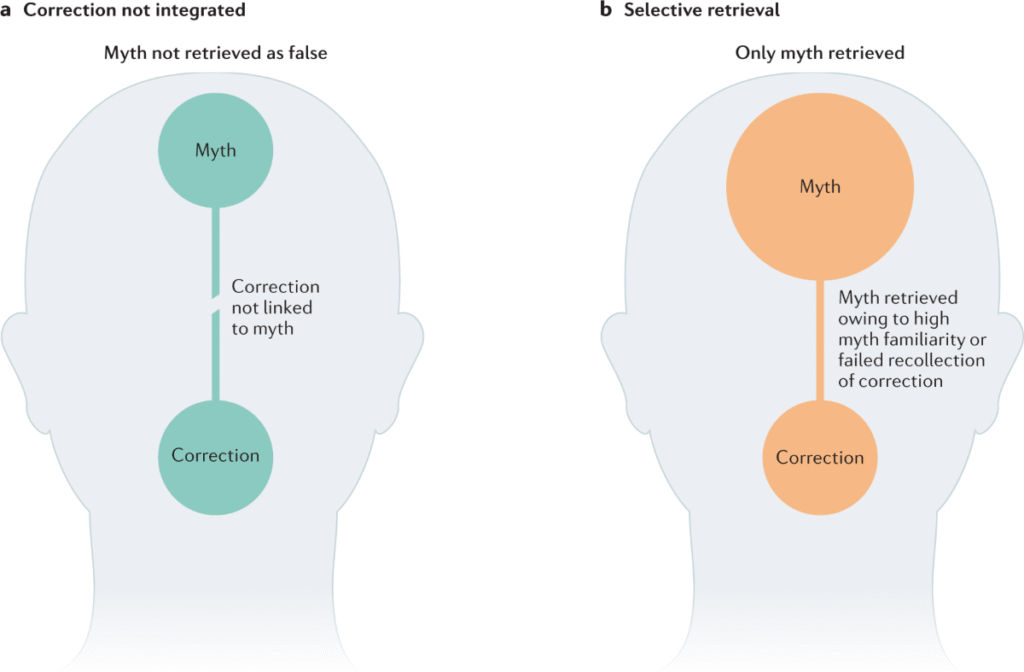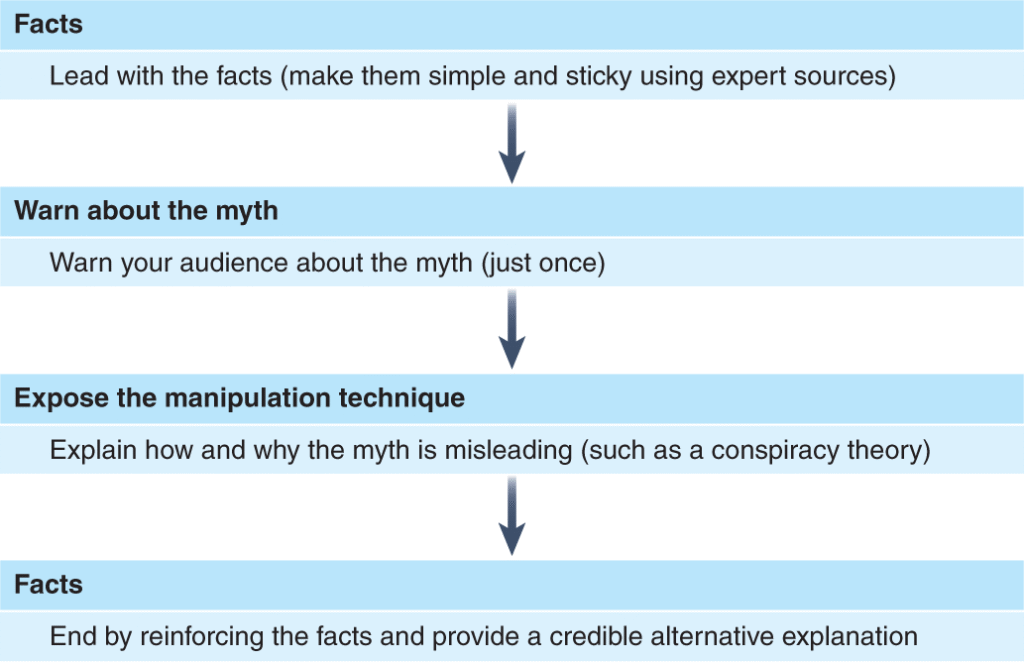The verb “debunk” refers to the act of exposing the falseness or hollowness of a myth, belief, or idea. When you debunk something, you are disproving it, revealing it as untrue, or showing it to be exaggerated or misleading. It’s often used when referring to myths, rumors, or conspiracy theories that need to be corrected with facts or logical reasoning.
For example, if someone believes that eating carrots improves night vision to an unrealistic extent, you could debunk this by providing scientific evidence to show that while carrots are good for your eyes, they don’t give you superhuman night vision.
Example Sentence: “The scientist worked hard to debunk the myth that vaccines cause autism, presenting years of research and evidence to the contrary.”
The Origins of “Debunk”
The word “debunk” was coined in the early 20th century. It is believed to have originated from the slang term “bunk”, which means nonsense or foolishness. The prefix “de-“ means removal or reversal, so when combined with “bunk,” debunk means to remove or expose nonsense.
The first recorded use of debunk appeared in 1923 when the American humorist William Woodward used it in a satirical article. Since then, it has evolved into a commonly used term in both academic and informal settings for dismissing myths, discrediting false claims, or correcting inaccurate beliefs.
How to Use “Debunk” in Different Contexts
The word “debunk” is most commonly used when referring to myths, misconceptions, or false claims. Here’s how you can use it in various contexts:
- In Everyday Conversations:
- You can use “debunk” when discussing a rumor, myth, or widely accepted idea that is actually false.
- In Scientific and Academic Discussions:
- Scientists and researchers often debunk outdated theories or unproven ideas with rigorous experiments and evidence.
- In Media and Journalism:
- Journalists and fact-checkers frequently debunk false claims made by public figures or news outlets.
- In History:
- Historians often debunk long-held myths about past events, providing a clearer, more accurate picture.
Synonyms and Antonyms of “Debunk”
Expanding your vocabulary is essential, and knowing the synonyms and antonyms of “debunk” allows you to express the same idea in different ways.
Synonyms:
- Disprove
- Expose
- Falsify
- Refute
- Contradict
- Discredit
- Deny
Antonyms:
- Confirm
- Validate
- Support
- Prove
- Verify
- Affirm
Example Sentence: “While the report debunked several health myths, it affirmed the importance of exercise for overall well-being.”
Real-Life Examples of “Debunk” in Action
- Debunking Health Myths:
- One common area where debunking is important is in the realm of health and wellness. Many myths circulate about diets, exercise, and alternative medicine, and it is essential to debunk these using scientific evidence.
- Debunking Popular Myths:
- Many urban legends or common misconceptions are debunked by people in various fields, especially on platforms that emphasize factual information.
- Debunking Historical Inaccuracies:
- In the field of history, many widely held beliefs about historical figures or events are proven to be incorrect through new research and findings.
Why is Debunking Important?
- Fighting Misinformation:
- In today’s age of social media and digital communication, misinformation spreads rapidly. Debunking myths is essential in stopping the spread of false information that can mislead or harm people.
- Building Trust in Facts:
- By exposing false claims and providing evidence-based answers, debunking helps reinforce trust in factual information, especially in topics like science, history, and health.
- Promoting Critical Thinking:
- Debunking encourages people to think critically about what they hear and read. It teaches them to ask questions and seek out the truth, fostering a culture of rational inquiry.
- Correcting Historical Records:
- Debunking is crucial for historians and researchers to correct false narratives and provide a more accurate representation of events and figures from the past.
Image Prompts for SEO Optimization
Here are some image prompts to complement your blog visually and improve SEO:

Alt text: “Fact-checking and debunking a false claim with factual evidence.”

Alt text: “A scientist using experiments to debunk a scientific misconception.

Alt text: “The process of debunking myths versus the spread of misinformation.”
Conclusion: Mastering the Art of “Debunking”
The ability to debunk myths, false claims, and misconceptions is more important than ever. Whether you’re a journalist, a scientist, a historian, or just someone looking to clear up misunderstandings, debunking is a valuable skill that allows you to provide clarity and truth. As misinformation becomes more prevalent, it’s essential to learn how to debunk effectively, using reliable sources and facts.
By understanding “debunk”, you can take part in the critical process of revealing the truth, challenging false narratives, and encouraging a deeper understanding of the world around you. Start using “debunk” in your language today to add clarity and precision to your discussions, and always strive to seek the truth.
https://englishskillstudio.com/wp-admin/post.php?post=1481&action=edit